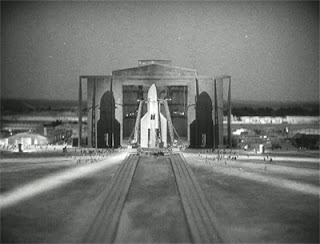Here we go again.
Ken Hayworth is mad that more neuroscientists aren’t working on the problem of immortality.
(I)t is still really bugging me that we could ALL likely get to the future together (via quality brain preservation and far future mind uploading) if only the neuroscience community would start taking its own findings seriously and consider the implications.
He seems to think that neuroscientists are avoiding this topic because we are all secretly dualists?
Neuroscientists should not succumb to magical thinking about the mind/brain.
I don’t know any other working neuroscientists who think the brain in magic. Citation needed.
Neuroscientists should know that we already have the tools to preserve brains fantastically well at the ultrastructural and molecular levels using aldehyde fixation.
But Hayworth does not say how he can demonstrate that the current level of detail of preservation is “enough” detail. Sure, synaptic connections will be important. What about resting membrane potential? Gasotransmitter levels? Blood flow? Can any of those be captured in a static preserved brain?
Of course mind uploading will be possible in the future… just read the damn literature on models of brain function… they are all computational.
But Hayworth does not say how he can demonstrate how structural information can be converted into a computational model.
Why refuse to openly discuss/debate what should be considered the most important long-term application of your research?
Here I am, discussing it. I’ve answered a lot of questions about mind uploading on Quora. Let’s see... (Searches Quora) In no particular order:
Is mind uploading digital immortality a real possibility for the future?
How is it possible to copy our brains into computers?
How realistic is mind uploading and what should I learn in order to research it?
Could thoughts and memories be digitalized at some point?
How long will it be until I can upload my consciousness?
Why are people so against the idea of mind uploading and even question its possibility?
Do any laws of physics prevent mind uploading?
Can the-mind be uploaded to a computer?
What do we need to know in order to be able to upload a human mind?
Hayworth thinks mind uploading is a mere engineering problem – like space travel in the 1920s. It was pretty clear that you could get into space with a big old rocket. (A movie about going to the moon, Frau im Mond, was made in 1929.) Conceptually, we knew how to solve the problem. Creating the rockets was a mere engineering problem.It is like physicists refusing to discuss the possibility of fusion power plants. It is like NASA refusing to contemplate human settlements on Mars.
But I argue that mind uploading in the 2020s is not like space travel in the 1920s. “Mind uploading” is an unsolved conceptual problem, as far as I can see. That is, it’s more like NASA admitting they don’t know how to create artificial gravity or faster-than light travel than refusing to think about sending humans to Mars.
Liquid fueled rockets were flying in the 1920s. What’s the “mind uploading” equivalent of Goddard’s rocket? Can Hayworth point to a single working model of taking a preserved nervous system and successfully reconstituting it as a complete digital model that can faithfully reproduce behaviour?
For me, science is the art of the solvable. If there is anything I have learned in science, it’s that the only way to tackle big questions is by tackling small questions.
And I am selfish. I want to contribute to problems I can solve in my lifetime. Or, at least, see some significant progress towards solving. I don’t want to chase pipe dreams of the “far future.”
Many a career has been wrecked on the rock of “big ideas.” Immortality is a exactly such a rock.
Do you have scientific objections that will stand open scrutiny?
Wait. Burden of proof is on the claimant. If Hayworth thinks mind uploading is possible, it is up to him to specify why it is possible. In considerably more detail than a six tweet thread.
Human life not worth saving?
Hayworth may consider a biologically based computer model to be a life. But many will not. Nowhere in his description is how this “uploaded mind” will interact with the world. Hayworth probably considers Alex Murphy’s existence in RoboCop not just acceptable, but positively luxurious:
I don’t think a disembodied simulation of a dead brain warrants the name “life.”
Related posts
Brainbrawl! The Connectome review
“Mind uploading” company will kill you for a US$10,000 deposit, and it’s as crazy as it sounds



No comments:
Post a Comment